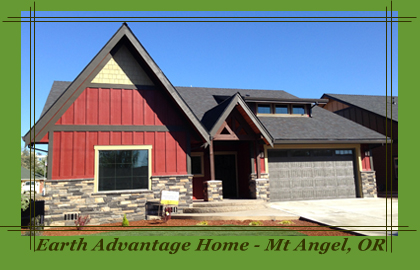
|
Insulate
Walls
Add rigid foam insulation to house walls.
Getting anywhere close to the R-40 goal for wall
insulation isn’t possible by simply insulating
existing wall cavities. (Insulating 2x6 walls
with dense-pack cellulose or fiberglass achieves
less than R-20.) The best approach for
dramatically boosting wall R-values is usually
to add a layer of foam insulation. Whether to
add this on the interior or exterior depends on
what shape the exterior siding and interior
walls are in and how much space you have to work
with. In a big house where the exterior siding
is in good shape, insulating on the interior
with 4" of rigid foam, then adding new drywall
and trim may make sense. But in most existing
homes, adding a thick layer of foam on the
exterior usually makes more sense. Adding four
inches is a reasonable plan.
|
 |
Roof Overhangs
Extend roof overhangs and window openings.
Assuming rigid foam is added to the outside of
walls, the roof overhang may need to be extended
to protect the walls and windows. This is a big
job that can easily cost $10,000. Window and
door openings also will have to be extended,
with proper flashing, air sealing, and trim.
Windows
Replace or upgrade windows. Windows are a key
component of deep-energy retrofits. Existing
single-glazed or insulated-glass windows will
probably need to be replaced with
state-of-the-art triple-glazed windows with two
low-emissivity (low-e) coatings and
low-conductivity gas fill, such as krypton. If
the existing windows are in good shape, adding
double-glazed, low-e storm windows might be an
option, though such windows will likely have to
be custom-made, since no insulated-glass storm
windows are currently on the market.
Attic Insulation
Add more attic insulation. If you have an
unheated attic, more insulation (cellulose or
fiberglass batts) can usually be added on top of
what’s already there. If you have a cathedral
ceiling and insulation in the roof, boosting the
R-value can most easily be achieved by adding a
layer of rigid foam insulation on top of the
roof when re-roofing is done. In this case,
detailing at the eaves and gable-end of the roof
has to be carefully planned to keep the roof
from looking clunky.Cost of deep-energy
retrofits, of course, is a huge challenge. For
an average-sized house, the cost of this scale
of retrofit could easily cost $50,000 to
$75,000. |
|
|
|

